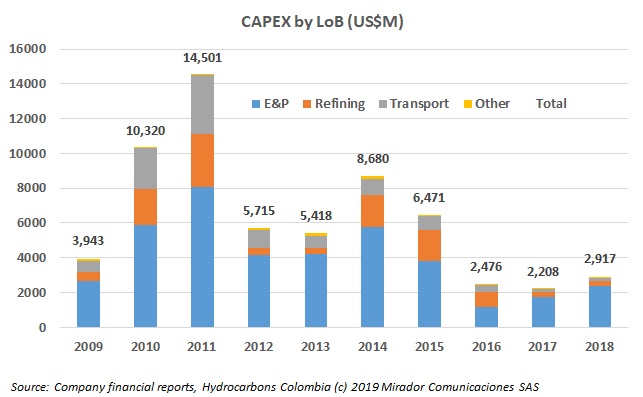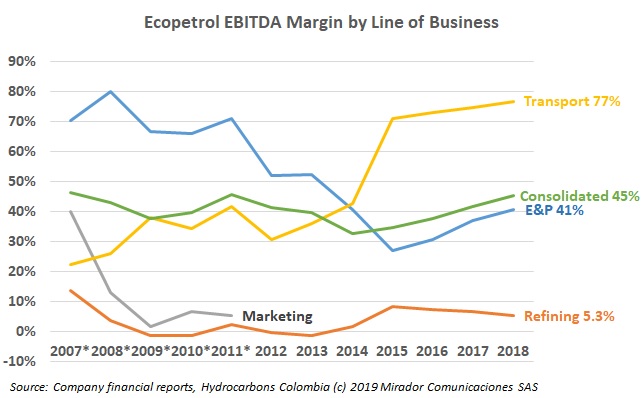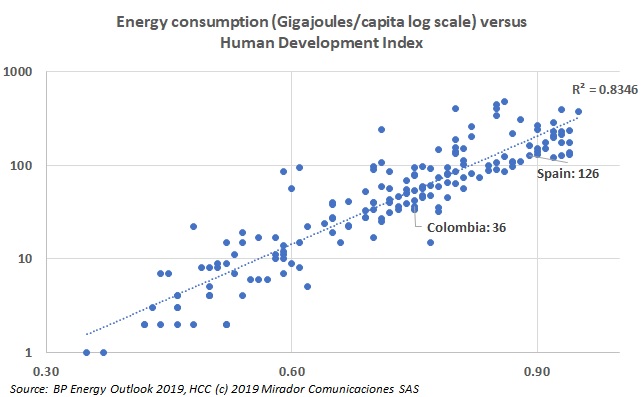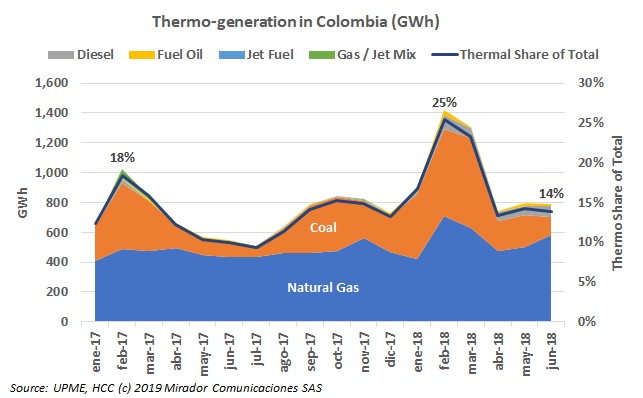
Once again, the Analyst thought of some charts he really would have wanted to publish in last week’s article about the NOC’s Line of Business (LoB) results but did not think of until a few days later. We know. We will speak to him about that. But he is right, the graphs are interesting so we will publish them this week.
Inspired by the rapid approach of baseball season, two short rather than one long comment this week, one on 2018 results so far and one on fracking, inspired by MinMinas naming five companies as being interested.

Ecopetrol published its results this past week and CEO Felipe Bayón was rightly trumpeting the NOC’s earnings for their contribution to the nation’s coffers. But hidden in the results presentation was worsening margins in the Refining Line-of-Business (LoB).
We are not at a milestone like ‘100 days’ or ‘six months’ but a lot has happened in the past month from a policy perspective so I thought I should write about it.

February 14th is Valentine’s Day in many parts of the world (and increasingly celebrated in Colombia). It is also the day that BP chose to launch this year’s Energy Outlook, an eagerly-awaited, multi-scenario look at the future of energy demand and supply. (OK, eagerly awaited by nerds like our Analyst.)
Last week, I was at my annual pilgrimage to a high-tech fair in Barcelona and it happens to occur directly after BP publishes its annual Energy Outlook. With the forecast in my head, this year I was particularly looking at the fair for trends that affect the oil and gas business. I found one that will have a definite impact and one that should, theoretically, but for which it was hard to find real-world examples.
On February 14, 2019 the Commission of Experts gave its report on the adoption of fracking / unconventional technologies for Colombian exploration and production. We have written several articles on the content. Here we talk about the press reaction.
We attended the presentation by the Commission of Experts engaged to give recommendations on fracking. The next day, we published a summary of the recommendations, last Monday we explored those in some depth and today we go back to fill in some of the details.

As we published last week, the MinMinas think-tank and research bureau, UPME, published a long document on energy prices just before Christmas. We have picked a few charts we think are interesting.
Last week we wrote a very high-level summary of the Commission of Expert’s recommendations on fracking. This week we go one level deeper and look at the recommendations in detail. Next week will publish our summary of the commission’s findings and conclusions.